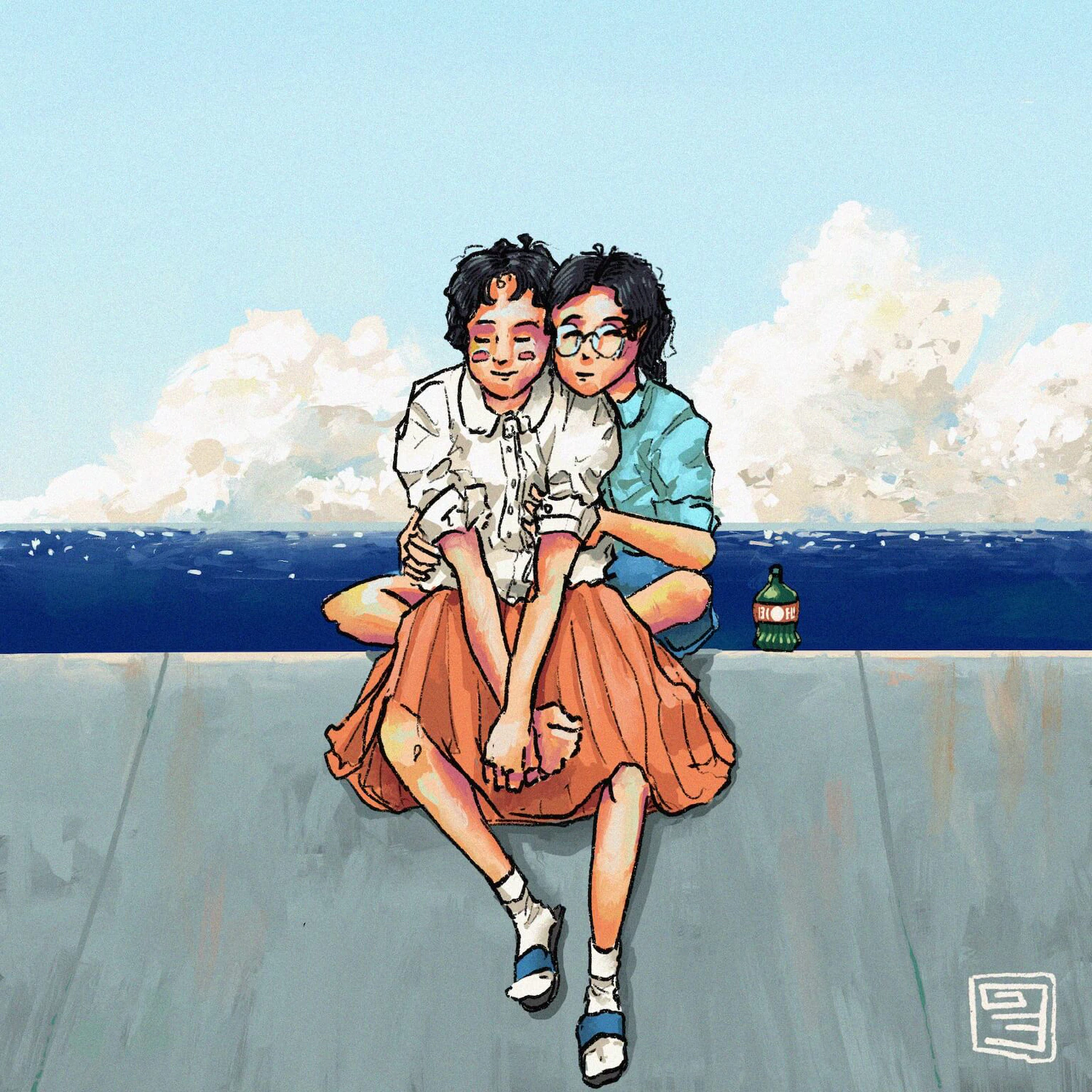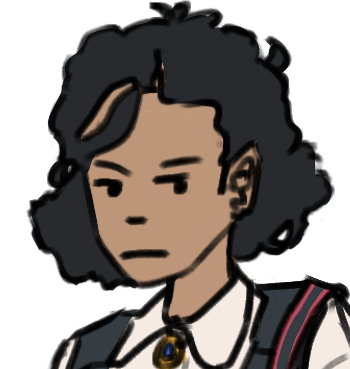NEW Story: Sunday Morning
Emotional Intelligence in the Epoch of Rest

This article is not part of Vekllei canon. It may be old, obsolete or just a bit of fun.
Let’s talk about childhood and utopia. This post comes as we wind down Study Month in r/vekllei. Strap in kids, because this one gets kind of heavy.
Tzipora and Cobian, pictured here, have very different stories but both have felt something was not quite right about them. That difference, so it would turn out, would blossom into a preference for women as partners, in the unusual desexualised way Vekllei goes about homosexuality in the late 2070s. To Cobian, who grew up in Vekllei, the realisation was fairly straightforward, although not without moments of anxiety and doubt. To Tzipora, who grew up in the United States, she found herself in crisis. She had previously held deep reservations about so-called ‘bolshevik lesbianism,’ only to discover a contradictory, immutable fact about herself. The canyon between their understandings of how relationships work reveals just how unique Vekllei is in the world today.
One of many pains of Vekllei’s growing material wealth was the economic unchaining of women from their husbands, and a shift towards solitude and independence for both men and women. For many, especially in the anxiety of the First Atomic War, lust became work, and marriages and birthrates fell quickly. As the poverty of post-war life developed into fledgling community-focused industry, so too did so-called “economic feminisation” (the abolishment of the male burden through the bureau system and work as pleasure) bring about changes in how women understood themselves in a society without commodity.
These economic facts coincided with serious cultural seizures of anger and confusion at the collapse of old values and the bloodline-focused family, which culminated in a period of great population stagnation and cultural unrest without anything to fill the vacuum.
In a move rare for Vekllei’s growing council-style democracy called Sundress Municipalism, a cultural movement was enacted at a national level. It was called something along the lines of a ‘sun-facing’ attitude, or semoisnesne, in which free love, relationship pragmatism and most of all, familial independence were encouraged to foster baby-making and marriage happiness. Realistically, this cultural ambition was reinforced with several hundred social programmes designed to mitigate domestic violence, marriage breakdown and divorce. The restructuring of the post-war legal system, in conjunction with semoisnesne, had the unintended side-effect of decriminalising homosexuality, making Vekllei one of the few countries in the world to have done so. Normalisation was not a smooth experience, and social problems linger to this day, but is nonetheless utterly unique in the cultural landscape of the modern Western world.
Semoisnesne, like most cultural phenomena, has seen a downturn in popularity in the most recent generation of teen-agers and young adults, as part of a wider trend of emotional and sexual reticence in part as a reaction to the ostentatious displays of sexuality of the decades prior.
Undoubtedly, semoisnesne has made Vekllei a better country. It is now much easier to announce your preference for love in your own gender than it was previously, and that brings with it a whole shift in worldview — most crucially of normalisation, where such things are tolerated and visible in everyday society. Like many ambitious progressive projects, it has become a cultural pariah in recent years (teens today sarcastically refer to their attitude as lumoisnesne, which better translates to good-facing [in the sense of a moral or ethical good]), but its marked impact on emotional intelligence and feminisation of the country has undeniably set Vekllei apart in a time dominated by fear and cultural retreat.

